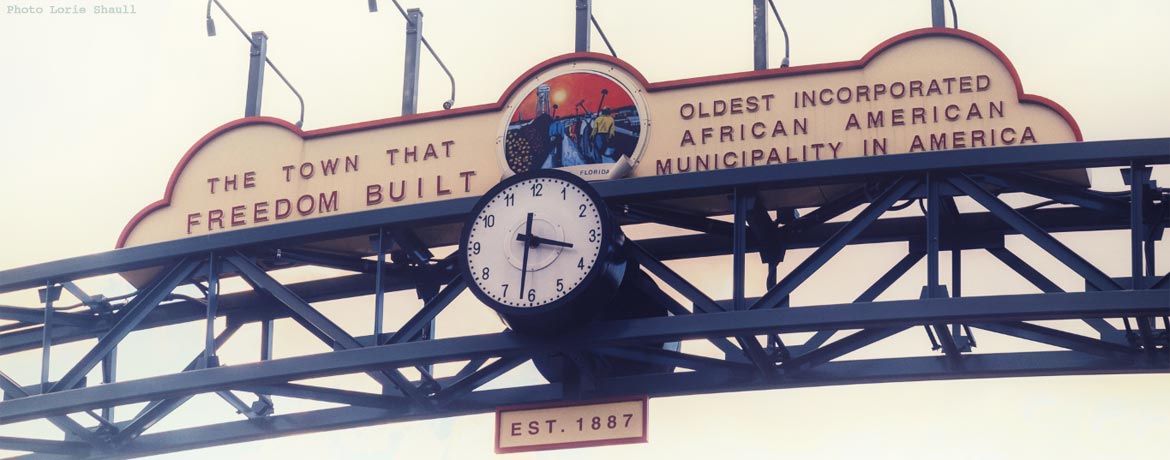Welcome to Eatonville, Florida, the oldest incorporated African-American community in the US.
The oldest incorporated black community, Eatonville, Florida is just minutes down the street from us. A casual stroll takes you into their small but beautiful downtown area. It is the mission of the Historic Town of Eatonville to preserve and protect the Town’s cultural heritage, enhance the quality of life of its citizens and expand global connections.
The Establishment of Eatonville, Florida
A number of blacks lived in the white community of Maitland. In 1882, businessman Joseph C. Clarke bought some land from Maitland Mayor Josiah C. Eaton. Clarke began selling lots to black families from Maitland and nearby Orlando and Winter Park. By 1887, though race relations were relatively harmonious, many blacks dreamed of having their own town. On Aug. 15 of that year, 27 registered voters, all black men, met and voted to incorporate. The new town consisted of 112 acres (the land Clarke bought, plus a 10-acre donated tract) and was called Eatonville in honor of the original owner.
That vote made history: Eatonville, Florida was the first incorporated African-American community in the nation. Some 100 such communities were founded during the same era; only about a dozen remain.
The Arts & Culture of Eatonville, Florida
Surrounded by ever-expanding Orlando and its surrounding communities, the town is perhaps best known these days for its annual showcase of arts, literature and culture that celebrates native daughter Zora Neale Hurston (ZoraNealeHurstonFestival.com).
The most recent event, held in late January, drew some 160,000 people to the tiny metropolis and attracted such big-name talent as salsa legend Celia Cruz, the Ramsey Lewis Trio and gospel storyteller and evangelist Dorothy Norwood, who once opened for the Rolling Stones.
The event also included education and fun events for some 10,000 to 15,000 youngsters; forums on jazz, theater and film presentations; and a street festival that included live music, a writers’ pavilion, a juried art exhibit and demonstrations of traditional crafts, as well as vendors and a variety of food merchants.
The town also boasts the small but soon-to-expand Zora Neale Hurston National Museum of Fine Arts. This year’s program consists of six exhibitions devoted largely to African-American artists.

